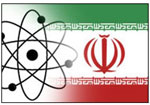 Reuters: Iran said on Monday it had struck a deal with Brazil and Turkey for a nuclear fuel swap but it was far from clear if that was enough to ease international concern over Tehran’s atomic ambitions and avert new sanctions.
Reuters: Iran said on Monday it had struck a deal with Brazil and Turkey for a nuclear fuel swap but it was far from clear if that was enough to ease international concern over Tehran’s atomic ambitions and avert new sanctions.
By Sylvia Westall – Analysis
 VIENNA (Reuters) – Iran said on Monday it had struck a deal with Brazil and Turkey for a nuclear fuel swap but it was far from clear if that was enough to ease international concern over Tehran’s atomic ambitions and avert new sanctions.
VIENNA (Reuters) – Iran said on Monday it had struck a deal with Brazil and Turkey for a nuclear fuel swap but it was far from clear if that was enough to ease international concern over Tehran’s atomic ambitions and avert new sanctions.
Iran said it had agreed to transfer 1,200 kg (2,646 lb) of its low-enriched uranium to Turkey within a month in return for higher-enriched nuclear fuel for a medical research reactor.
* AN ISSUE OF TRUST
The new proposal is similar to an original U.N.-backed deal with major powers to ship the uranium to Russia and France for transformation into fuel. Doing the deal with Turkey and Brazil, and naming Turkey as the destination for the transfer, would resolve Iran’s problems with trusting the big powers.
“Turkey and Brazil may have succeeded in filling the trust gap, both through the modalities of the new deal as well as by virtue of who they are,” said Trita Parsi, president of the National Iranian American Council.
* FOCUS ON FUEL DEAL
Diplomats say it is encouraging that Iran now appears to be accepting a swap outside Iranian soil and allowing the amount of low-enriched uranium — enough for a single bomb if purified to a high enough level — to be shipped out in one batch.
But they said Iran was trying to give the impression that it was the fuel deal which was at the center of problems with the West, rather than its nuclear ambitions as a whole.
“The deal is not the reason why Tehran is in trouble. It is the whole nature of the Iranian nuclear program and its refusal to answer questions,” a Western diplomat said.
Western diplomats also said removing 1,200 kg is less valuable now because in the months of wrangling over the original IAEA deal, Iran’s low-enriched uranium stockpile has almost doubled.
* WHAT ABOUT HIGHER ENRICHMENT ACTIVITIES?
Iran started higher enrichment in February, saying it would produce fuel itself. The escalation is a worry for the West because it brings Iran’s enrichment closer to the levels needed to make bomb-grade material.
Diplomats say the West will likely dismiss the proposal if Iran continues to enrich uranium to higher levels.
Iran’s atomic agency chief has said Iran would stop producing 20 percent-enriched uranium if it received fuel from abroad. But in recent talks between Iran and the International Atomic Energy Agency (IAEA) in Vienna this idea was rejected.
“If they refuse to stop enriching to 20 percent and make this proposal for fuel, then why are they continuing the higher enrichment? There is no other peaceful justification,” a Western diplomat said.
“This would be a deal-breaker,” another said.
* WEST WANTS TO SEE THE FINE PRINT
The new proposal may allow U.N. Security Council members to argue against a fourth round of sanctions but until there are more details, Western powers are unlikely to be convinced this is more than a stalling tactic, diplomats said.
The IAEA has declined to comment on the new proposal. Diplomats say the agency is seeking details and has not been informed. Iran has said it will pass on details within a week. An EU diplomat said the deal was a sideshow if it was not based on the original proposal.
Among the missing details are the questions of who will enrich the material to higher levels and who will make the fuel assemblies.
* INTERNAL DISPUTES
Talks over the original deal suffered from internal Iranian disputes, and the new proposal could suffer a similar fate.
Iranian President Mahmoud Ahmadinejad first appeared to favor the U.N. deal as a way to shore up his own power. But he faced stiff opposition from rivals in Iran’s political and clerical elite who would hate to see him reap credit for a breakthrough. Some voiced misgivings about parting with what is seen as a strategic asset.
But analysts in Iran believe Ahmadinejad wouldn’t have agreed on this deal without the blessing of the supreme leader.
(Additional reporting by Fredrik Dahl in Dubai, Luke Baker in Brussels and Parisa Hafezi in Tehran; Editing by Sonya Hepinstall)


